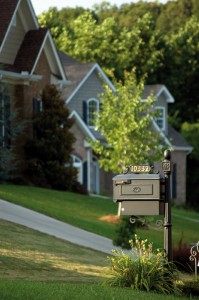Hot Property: Understanding Homeowners Associations

 House hunting is—and always will be—the process of weighing seemingly countless options and picking the ones that dovetail with your needs and wants.
House hunting is—and always will be—the process of weighing seemingly countless options and picking the ones that dovetail with your needs and wants.
There’s location, financing and even the moral impasse presented by full basements versus crawl spaces. One of the most important decisions any potential homeowner will face is: “Who are my neighbors and how much input do they get in how I manage my property?”
Enter the Homeowners Association (HOA).
Nearly 18 percent—24.8 million—of U.S. homes are part of the nation’s 300,000 HOAs, be they condominiums or detached dwellings, according to the Community Association Institute (CAI). In 2010, nearly 62 million residents were living as part of HOAs.
Despite occasional bouts of bad press, the vast majority of the HOA members are satisfied with their associations, according to the CAI. Polls have indicated that more than 70 percent of those living in HOAs had positive experiences.
 Tom Soranno, president of Wedgwood Homeowners Association near Roanoke, said the HOA provides homeowners a stake in not only their home, but also the neighborhood. “The HOA maintains the original builder’s intent regarding the neighborhood,” he said. “We focus on enhancing the look, feel and quality of the neighborhood.”
Tom Soranno, president of Wedgwood Homeowners Association near Roanoke, said the HOA provides homeowners a stake in not only their home, but also the neighborhood. “The HOA maintains the original builder’s intent regarding the neighborhood,” he said. “We focus on enhancing the look, feel and quality of the neighborhood.”
Diane Holdren, president of the Wexford Homeowners Association in southwest Roanoke, echoed this sentiment. “We maintain the credibility of the neighborhood—its classiness,” she said of their association.
HOAs are self-governed bodies. Even though some urbanized locales in Virginia require HOAs in new developments, none of the Roanoke Valley’s cities, towns or counties plan to demand HOAs as part of new developments, according to Chris Chittum, a planning administrator for the City of Roanoke. Since HOA members still pay local property taxes and partake of few local government services, many locales are loath to tinker with a golden goose. Many HOAs maintain their own roads and common areas, saving the local governments and VDOT millions of dollars annually. As a result, the HOA does not play heavily on the minds of local governments.
In contrast, the potential homeowner ought to keepHOAs on their radar. By their very nature, HOAs feature restrictive covenants and bylaws that dictate the fabric of their neighborhoods. Some homeowners chafe under these restrictions and others welcome the standards they bring to the community.
Jennipher Lucado, president of Brownstone Properties, Inc. is a 23-year veteran of HOA management. As a management agent, Brownstone handles a myriad of administrative chores for client HOA boards including collections, being the point contact for HOA members, and managing contractors.
“The board retains all the decision-making powers. We take the day-to-day pressure off the board,” said Lucado, a CAI- certified Association Management Specialist and a Certified Manager of Community Associations. “The board members all have jobs. They’re busy.”
 Steve Moriarity, a principle with Chadwick, Washington, Moriarity, Elmore & Bunn PC, a Northern Virginia law firm specializing in HOA and Condominium law, says while HOAs are necessarily complex beasts, they deserve respect and understanding. There are two basic types of HOA—those for condominiums and those for detachment homes with land, said Moriarity. The difference is fairly simple. Condo owners, as members of the condo HOA, share ownership of the common areas or amenities the HOA owns. In a development scenario with homes on lots, the common areas are owned by the HOA. The HOA also charges fees to the property owners to maintain the common areas.
Steve Moriarity, a principle with Chadwick, Washington, Moriarity, Elmore & Bunn PC, a Northern Virginia law firm specializing in HOA and Condominium law, says while HOAs are necessarily complex beasts, they deserve respect and understanding. There are two basic types of HOA—those for condominiums and those for detachment homes with land, said Moriarity. The difference is fairly simple. Condo owners, as members of the condo HOA, share ownership of the common areas or amenities the HOA owns. In a development scenario with homes on lots, the common areas are owned by the HOA. The HOA also charges fees to the property owners to maintain the common areas.
When buying a home, researching the HOA is as important as looking for evidence of termites and verifying the number of bathrooms. Moriarity explained that it is relatively easy to get information on any HOA connected to property that may become your dream home. If a property is part of an HOA, that will be noted on the deed. The information is readily available in every courthouse or through the counties’ electronic registries.
Also when the sale is being consummated, the buyer can request a full disclosure of the HOA involved. The disclosure will provide the Declaration of Covenants, the HOA bylaws and any other rules enacted by the HOA Board of Directors.
Lucado and Moriarty stressed the need to request the HOA’s financials as well.
By their nature HOAs govern not only the look of a neighborhood, but also significant aspects of the infrastructure —namely roads and streets. Also in some instances HOAs are responsible for individual home repairs.
“This may be the single most important item that a new homebuyer will want to check concerning an HOA,” said Lucado.
Most HOAs with significant capital requirements will formulate long-term financial plans. Within those plans can be a snapshot of the HOA’s financial health. Lucado suggested having a financial professional examine the HOA’s plan. She said having a CPA scrutinize the state-required Reserve Study can provide a good indicator of an HOA’s financial health.
“It’s important to look and see what is being held in reserve so you can protect yourself from special assessments in an emergency,” she added.
 Due diligence on HOAs has become more important over the years due not only to their proliferation, but also to the nature of the developments themselves. One increasingly popular development type in this area of Virginia is the “maintenance- free living” retirement community. In many cases, the HOA assumes the responsibility of upkeep on a much greater proportion of the property.
Due diligence on HOAs has become more important over the years due not only to their proliferation, but also to the nature of the developments themselves. One increasingly popular development type in this area of Virginia is the “maintenance- free living” retirement community. In many cases, the HOA assumes the responsibility of upkeep on a much greater proportion of the property.
“Look at the documents and be certain what is covered by the HOA and what is not,” said Lucado. “I’ve never seen an HOA cover every maintenance situation.”
Wexford’s Holdren said due to the mountainous nature of the development, the HOA contracts for winter snow removal on neighborhood streets. The cost is part of the HOA annual fee.
In cases of storm damage, HOAs may increase assessments significantly to repair homes. However, most fee or one-time assessments will be covered by the bylaws, and it is not uncommon for a fee/assessment ceiling to be on the books. In addition, often the HOA membership will have to approve any attempt at raising more money.
Lucado emphasized upkeep of the property is another reason to read the HOA disclosure closely. “Make sure you know what maintenance items are covered. Often times the real estate agent doesn’t know,” she said. “So it’s really important that you understand what will be taken care of.”
In Virginia, if the purchaser does not agree with the stipulations of the HOA documentation—covenants, bylaws or rules—the sale can be voided within three days with a full refund of any deposits.
The good news is that a strong HOA can go a long way toward stabilizing your home’s value and even increasing it.






